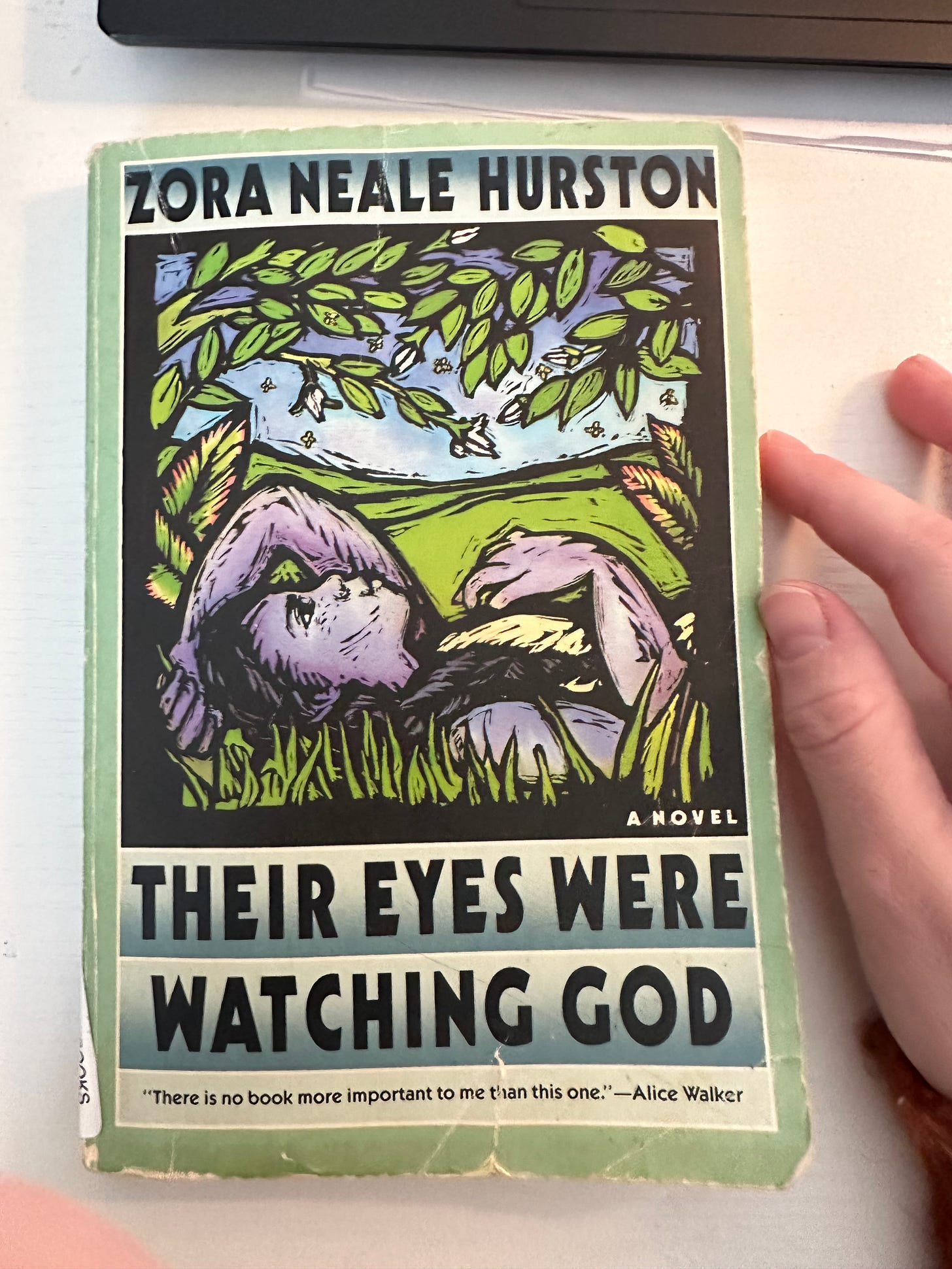Their Eyes Were Watching God- Facing What I Couldn't Face in High School
It turns out there's a lot of literature outside of old, cultural shelters
Technically, I read Zora Neale Hurston’s Their Eyes Were Watching God in high school. I remember my teacher leading us in an analysis of the scene where sixteen-year-old Janie dreamily lays down under a blossoming pear tree. “What do you think she’s dreaming about?” my teacher asked the class. I heard snickers and watched my classmates exchange knowing looks. I was bewildered. “Um…summer?”
Oh the naivete. That pear tree in bloom held a very different meaning. Once my teacher explained it, my sheltered, Christian, purity-ring-wearing teenage self was aghast. How dare this book smuggle sexual metaphors into the classroom? Sin!! I tuned out the rest of the book in an act of righteous defiance.
Naturally, I decided to reread the book this year.
Eighteen years of life, a marriage, and a series of racial and faith reckonings had ploughed the ground I was too haughty for in high school. My rereading experience was fascinating. The pear tree still made me a teensy bit uncomfortable, because old habits die hard (if ever). More clearly, I saw how the obsessive focus, and shunning, of a perceived sin blinded me to the book’s distinctive value. This novel is an example of the finest American literature, continuously in print since the 1970s, full of the most poetic prose you can find,
“So they were married there before sundown, just like Joe had said. With new clothes of silk and wool. They sat on the boarding house porch and saw the sun plunge into the same crack in the earth from which the night emerged.”
Gorgeous.
Statements like this are sprinkled throughout the book, and they consistently manage to startle the reader. One moment you’re reading about a group of raucous townspeople outside the general store, and, the next, you’re contemplating how the landscape parallels the characters’ personal transformative journeys. How does Zora do it?
Hurston writes in the dialect of the 1930s Florida Everglades. It’s very difficult to decode at first; I spent the first third of the book reading out loud, not unlike a game of Mad Gab. I love a good challenge, and the mental energy this took made the whole reading experience incredibly immersive. I felt like I was sitting on a porch in the sticky, Florida twilight, gossiping about my neighbor down the road.
A younger me would have written off the use of dialect as improper, uneducated grammar. Now I would describe it as a fascinating window into the relationships, communal values, and experiences of the characters. It’s an example of how humanity communicates with richness despite circumstances of poverty, oppression, isolation, or adversity. The dialect carries the pride of ownership: it belonged to the people of that time and place. I imagine Zora Neale Hurston would have been pleased to know just how uncomfortable the writing continues to make modern “educated” readers.
I find it delightfully ironic that copy of Their Eyes Were Watching God I bought off Thriftbooks ended up being a copy from a school’s English department. Room 28 of Kadena High School, to be specific. I wonder what those high schoolers, who wrote their names in the front, thought of the book. I wonder if they had to grit their teeth and get through it. I wonder if they found themselves in it. I wonder how many other books are waiting for ex-highschoolers to return and rediscover them.





